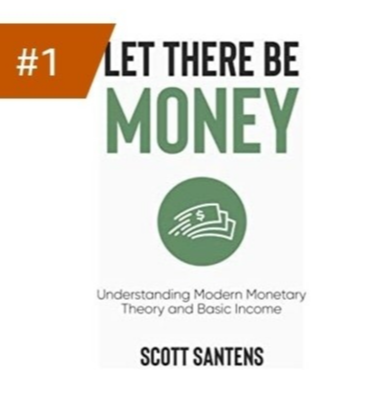An EU-wide scheme could address progressives’ concerns about proposals for universal basic income.
As the Conference on the Future of Europe progresses, its interim reports indicate that the proposal for a more social Europe most frequently suggested by citizens is a European universal basic income (UBI). This poses a dilemma for progressives who promised to seriously consider the proposals from the conference but have valid concerns about such a scheme.
They could flatly reject UBI but this would risk alienating citizens and feeding into scepticism about how seriously the European Union takes civic participation. Irrespective of whether progressives are in favour of UBI, by offering constructive visions they can stay on top of the debate.
Striking patterns
For the Foundation for European Progressive Studies, we conducted an analysis of UBI debates and reflected on the arguments for and against from a progressive political standpoint. We found some striking patterns.
First, support for and opposition to UBI can be found within various political movements, irrespective of ideological background. Secondly, the arguments are much more complex than often assumed, given UBI is typically framed as a simple solution. Thirdly, the (limited) evidence suggests many likely positive effects of UBI, although it is by no means a silver bullet. Fourthly, some important arguments against UBI are predominantly concerns about policy design—careless implementation could have significant detrimental social effects.
As UBI remains salient, it is all the more important then to develop a differentiated view of where and how it bears potential for progressive goals:
- it must be supplementary, complementing rather than replacing the welfare state;
- it must be redistributive, so that it acts as a net benefit for the less wealthy;
- it must render individuals independent of market forces, and
- it must foster European solidarity by giving the EU a tangible social dimension.
If European progressives choose to embrace UBI, it should be at EU level, administered by the union and paid directly to every adult EU denizen each month. Minors’ caregivers should receive a reduced payout, with the remaining amount accruing to a European sovereign-wealth fund. Part of this accumulated residue would be paid out to individuals as a lump sum of starting capital once they reached maturity, with part retained in the sovereign-wealth fund to help fund the scheme over the long run.
To discourage the wealthy from actually claiming UBI if they do not need it, starting at the national median income automatic payouts would be tapered at a linear rate with increasing income. In principle, everyone could still claim their UBI regardless, but unclaimed funds would be channelled into the sovereign-wealth fund. Such a universal right to income would be more in line with progressive ideals than a universal income paid out automatically without exceptions.
Universal entitlement however sets this scheme apart from traditional means-tested approaches. It is key to overcoming issues such as discriminatory practices while avoiding problematic incentives due to cut-off points.
Protection against poverty
In the long run, a progressive UBI would need to protect citizens against poverty at 60 per cent of the respective national median income or 50 per cent of the mean income—whichever were higher. To keep the scheme feasible while incentivising upwards convergence and ensuring sufficiency, no national UBI should fall below 20 per cent of EU-wide median income or exceed 60 per cent of it. Responding to persisting concerns, progressives might embrace further differentiation at the local level.
While the existing empirical research indicates that phenomena such as moral hazard associated with a UBI are smaller in magnitude than is often suspected, there are valid concerns about what one can extrapolate from it. One way of engaging with citizens’ proposals while taking the risks seriously would be to introduce the scheme at very low levels, raised slowly as increasing funds became available.
This would also allow policy-makers to react swiftly with complementary schemes and regulations if employers were to abuse the scheme by wage-dumping. As such risks exist in any event and are being addressed through policy measures, it seems unlikely that a UBI could work without such policies or that the latter would stop working if a UBI were implemented.
By implication, a progressive UBI would only be part of an encompassing mix of social policies and regulations, avoiding the overall system being reductively focused on monetary tools. Established welfare systems must remain in place from a progressive perspective, as UBI can never be a panacea but bears potential as a complement to means-tested schemes which closes otherwise unavoidable gaps.
Even initially low levels of UBI would be a non-stigmatising social improvement, especially for low-income individuals. The only social policies which could be voluntarily replaced as a result would be monetary transfers whose value was by then fully covered by the EU UBI.
Revenue sources
For funding, we propose stepwise utilisation of various revenue sources. These would include designated EU resources, such as a financial-transactions tax, a carbon-dioxide tax, a green border tax, extended emissions trading, a sovereign-wealth fund, a digital-services tax, an EU-level value-added tax and a ‘robot tax’, as well as taxes on luxury goods, high incomes, inheritances, wealth and land value. In addition, national corporate-tax contributions could be partly hypothecated.
Could such funds not be used otherwise more effectively? Means-tested schemes are ostensibly more targeted than UBI but they suffer from stigmatisation and low uptake, as well as mistreatment and discrimination by case workers of the most vulnerable. And a UBI might be conceptually more appealing for progressives at EU level, since it would visibly strengthen the social acquis without directly competing with national welfare policies.
Further issues, such as legal limitations in the EU treaties and political scepticism towards a UBI, must be taken seriously. In light of the Conference on the Future of Europe, however, progressives should engage with the debate in an appropriately nuanced way, by discussing more openly the conditions a European UBI would need to fulfil to be considered desirable.
- Authors: Dominic Afscharian, Viktoriia Muliavka, Marius S Ostrowski , Lukáš Siegel
- Original post: https://socialeurope.eu/towards-a-progressive-european-basic-income




